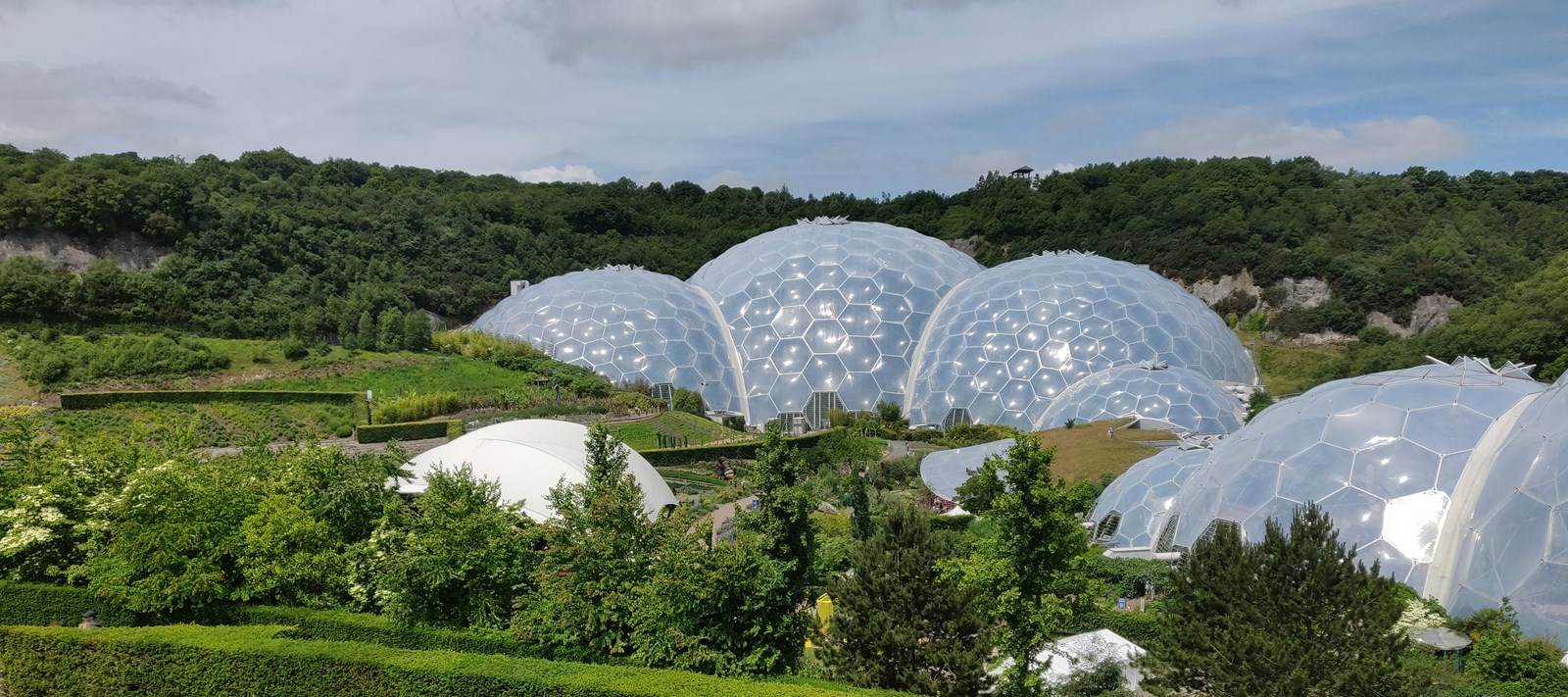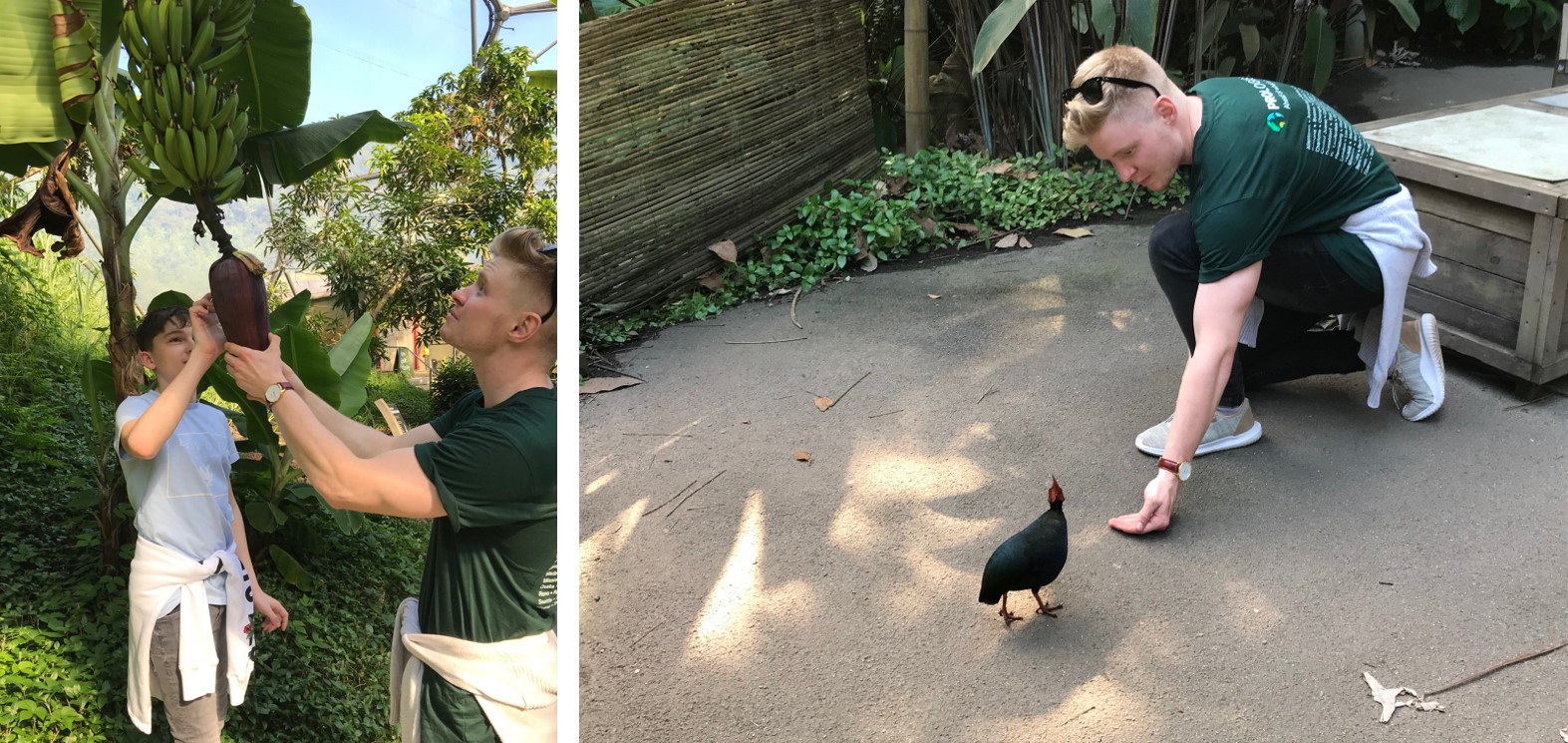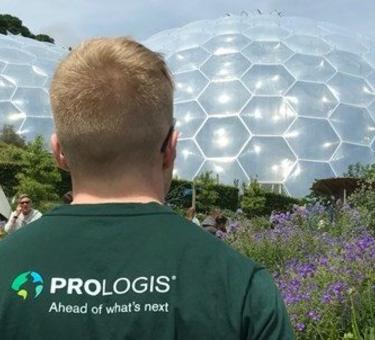How creative thinking could save the planet (and why dried insects would be better in a stir-fry)
A blog post by Theo Morris
The Eden Project is an educational charity whose aim is to connect us with each other and the living world, exploring how we can work towards a better future. It’s nestled in a huge crater which, back in 1995, was a working china clay pit nearing the end of its economic life. Now it is a thriving place where nature is celebrated and curated so that different plants and zones offer a 13-hectare lens through which to view humanity.
The Eden Project is a place that I’ve wanted to visit for quite a long time, but never found the motivation to go. Now I find myself a fool for not seeing the ‘wood for the trees’ because it is a truly special place that I owe my change of heart to. Previous to the trip, as part of my undergraduate placement programme at Prologis UK, I had been engaging, on a low level, with sustainability within the built environment, and it was through Prologis’s engagement with Planet Mark that I, along with a colleague, 6 lecturers and 40 students from the Warwickshire Collage Group, were sponsored to make the long trip south to Cornwall.
Mike Super-Mann Smith, (yes, that’s his real name) our esteemed tour guide and one of Eden’s resident eco-enthusiasts, was an absolute hero. The fact that a devout Geordie had set-up home in Cornwall should tell anyone that there must be something special about the place. We first visited the rainforest biome to experience four of the world’s rainforest environments: Tropical Islands, Southeast Asia, West Africa and Tropical South America. As we were herded around like wide-eyed school children, Mike told the stories of the plant and animals, to enrich our understanding and appreciation of what it was we were seeing. The Titan Arum, otherwise known as the corpse flower, was a marvel to witness as it’s the largest flowing structure on Earth, growing up to 3m in height. It only flowers for 48 hours every 7 to 9 years and much to our disappointment, we discovered that we had only missed the rare flowering by a week!

One of our favorite parts of the rainforest biome was the canopy walk. You walk up 64 steps to a suspended walkway at the top of the biome, ascending into what felt like a oven. At the top it was a balmy 57oC and 100% humidity, so as you can imagine there were a few who regretted not wearing shorts, including me. Once you recover from the surprise of the climate, you are greeted with a scene out of Jurassic Park. Ripe green jungle beneath our feet, with ant-sized figures scurrying around, oblivious to those above them.
The ethos at Eden is to engage people so that they might try something weird and wonderful, and help people move beyond their comfort zones. Lunch time was no exception. After the group devoured a delicious selection of chicken, beef or vegetarian burritos, we were confronted with a rather unconventional dessert – dried crickets and meal worms. Believe me now, experts predict that insects will one day be a part of our natural diet and, after having tried the critters, all I can say is that they will probably be best served in a stir-fry.
I won’t be so bold as to say that I will be scouring the supermarket aisles for ‘critter crisps’, but it was an experience that I enjoyed because I had never tried it before and, my apprehension overcome, from then on, set out to do everything and anything I could during our short stay.
After lunch we ventured on to a hub where students were split into random teams and given a mission of life or death! Okay, no-one’s lives were at stake but the mission was to search the different biomes for species of plant that could potentially be taken with them to Mars to ‘save the human race’. Each group had to discover twenty plant species that they then had to present to the rest of the groups and demonstrate the use of each plant. Presenting in front of strangers really did push some people out of their comfort zone but it was quite humbling to see the majority of the students make a conscious effort to engage with the task and see their confidence grow throughout the process.

Rising at a reasonable time the next morning and, after eating a hearty breakfast in the central hub, Mike, once again took up the reins. Gathered in a circle in the centre of a large conference room, Mike’s booming voice rang with words that touched me in a way I did not expect. “WHAT GAMES DID YOU PLAY AS A LITTL’UN, AND WHY HAVE YOU STOPPED PLAYING ‘EM?” A question that caused a sincere wave of nostalgia to wash over me and once again I found myself feeling estranged to the tasks at hand. No one in the room, when asked, had played like we had when we were children for many years and you could sense the lull in the room as each and every one of us reminisced about our childhoods.
No matter who we are today, we all shared a common sense of acknowledgement that we had diminished our childhood freedoms of creativity and expression as a result of ‘maturing’. We were made to question the need to be sensible and ask why we conform to societal ideas about how we should behave.
Why is this important? Well, the point of immersing people in the natural world, pushing them outside their comfort zone and challenging them to think for themselves is crucial if we are going to solve the world’s sustainability problems. Creative thinking and a will for groups of people to work together could very well save the planet.
For me it caused a huge shift in my goals and ambitions. I left The Eden Project determined to do something useful with my skills. Before I joined Prologis I had very little idea what the industrial logistics sector was all about and I certainly had no idea that industrial logistics buildings could play a part in protecting the rainforest or that sustainable development is such an important issue. It’s made me reconsider my career path and I now plan to build a career in sustainable development. What will you do to protect the planet?
